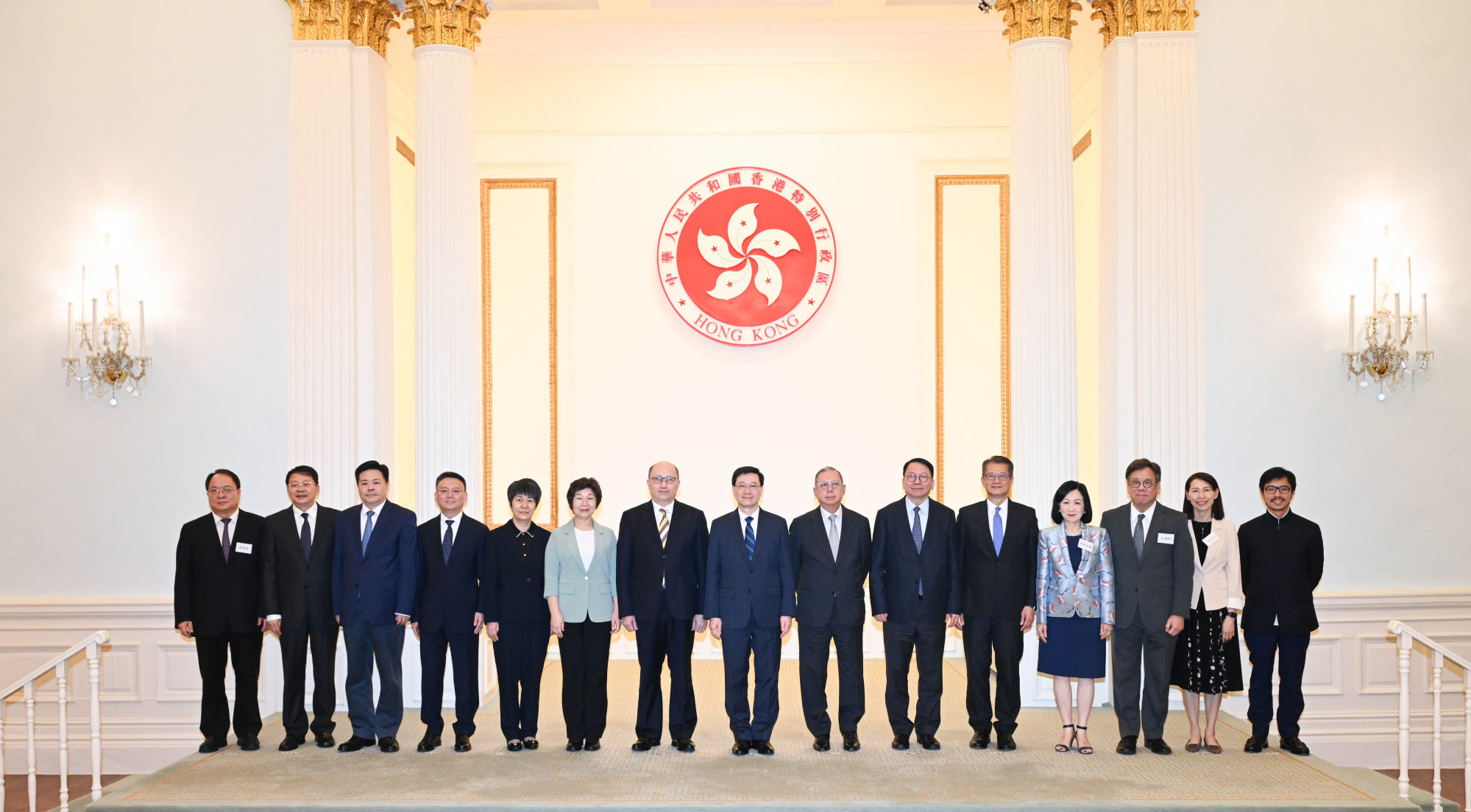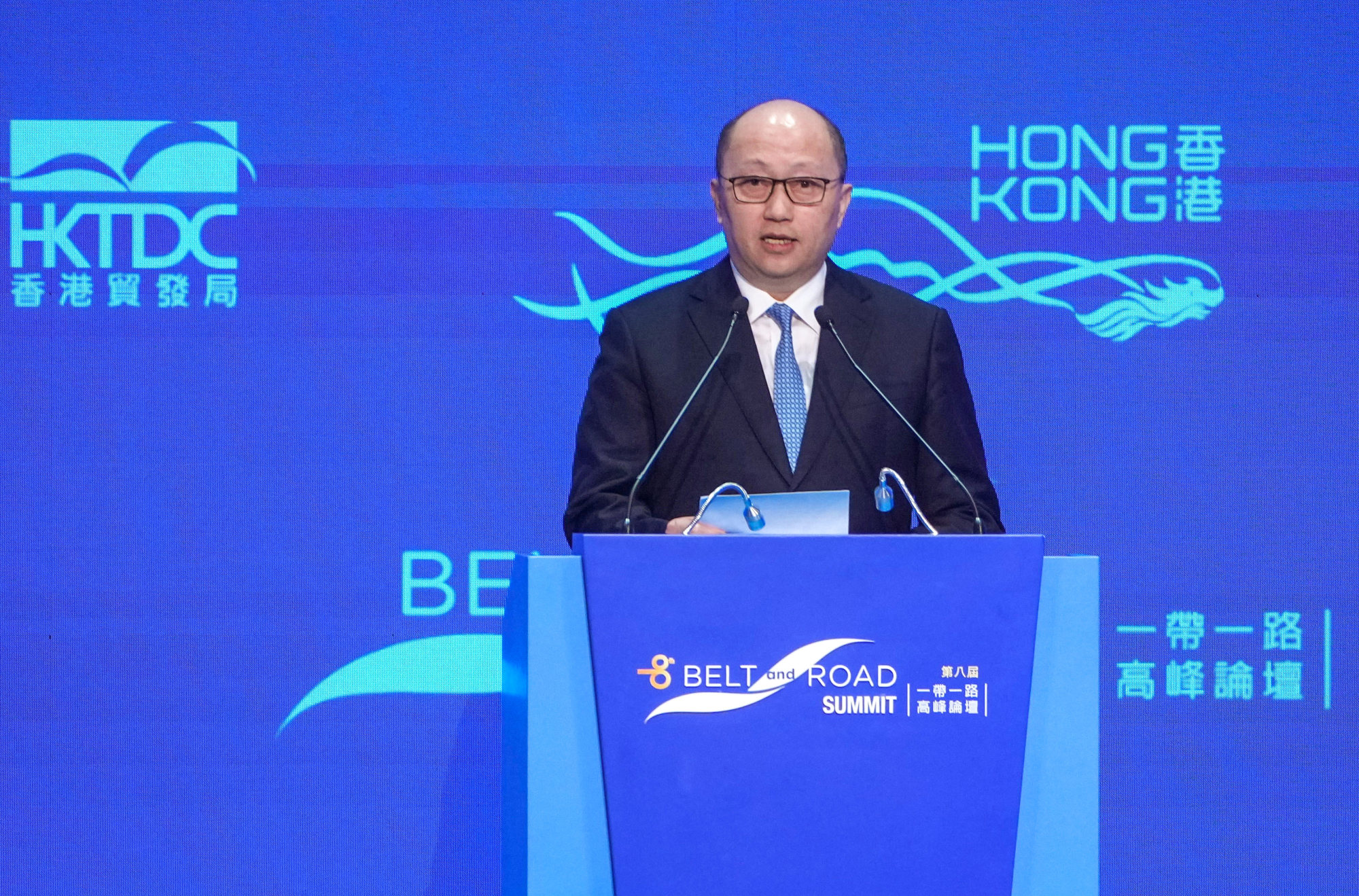[ad_1]
Hong Kong has Beijing’s backing to maintain its unique edge with a common law system, a “free, open and regulated” business environment as well as global links to play a bigger role in the Belt and Road Initiative, according to a top state official overseeing city affairs.
Chinese Vice-Premier Ding Xuexiang was addressing the opening session of the two-day Belt and Road Summit on Wednesday in a pre-recorded message. Ding is the most senior state leader to speak at the event in Hong Kong, into its eighth year.
The virtual presence of Ding – the sixth-ranked Politburo Standing Committee member – at the high-level summit in Wan Chai marked the clearest public confirmation to date of his role as the state official in charge of the party’s Central Leading Group of Hong Kong and Macau Works.
Hong Kong’s legal hub ambitions to get further boost from Beijing: senior diplomat
Hong Kong’s legal hub ambitions to get further boost from Beijing: senior diplomat
Ding said Hong Kong had done “a lot of work” in deepening cooperation with belt and road countries through taking advantage of the city’s strengths in professional services such as finance, law, and shipping, as well as promoting people-to-people and cultural exchanges.
“We support Hong Kong in maintaining its unique status and advantages for the long run … maintaining a free, open and regulated business environment, maintaining the common law system, expanding streamlined and convenient international connections, and playing a more important role in building the Belt and Road Initiative together,” Ding said in his first speech on the city.

He added that Hong Kong remained an important bridge and window connecting the mainland with the world, urging the city to deepen international cooperation through joining the RCEP – the world’s largest trade deal centred on Southeast Asian economies – as soon as possible and signing more free trade pacts with other economies.
Hong Kong had also realised better and broader developments through integrating into the national development strategies, Ding said.

The summit was also attended by Zheng Yanxiong, deputy director of the Hong Kong and Macau Affairs Office and director of the central government’s liaison office; Guo Tingting, Chinese vice-minister of commerce; Gou Ping, vice-chairman of the State-owned Assets Supervision and Administration Commission; and Xiao Weiming, deputy secretary general of the National Development and Reform Commission.
High-level officials from at least 10 countries are expected to join about 6,000 representatives from other nations for the event, organised by the local government and the Hong Kong Trade Development Council. Around 20 memorandums of cooperation are also due to be signed.
The summit has returned to a physical format for its eighth iteration, after the Covid-19 pandemic forced the event to be held virtually since 2020.
Hong Kong HK$17 billion business boost and 4,000 new jobs trumpeted by Paul Chan
Hong Kong HK$17 billion business boost and 4,000 new jobs trumpeted by Paul Chan
Hong Kong Chief Executive John Lee Ka-chiu on Tuesday said the “record-breaking” attendance showed the international community had confidence in the city’s return to the international stage.
The government would use the event to promote Hong Kong as a valuable trade and investment partner, while also exploring opportunities arising in emerging markets such as the Middle East.
Lee also met 260 representatives from the State-owned Assets Supervision and Administration Commission and 35 state-owned enterprises.
Investors should look to ‘Hong Kong as financing platform’ for belt and road projects
Investors should look to ‘Hong Kong as financing platform’ for belt and road projects
Chan touted the city’s wide array of financing sources for such projects, including listings, securitisation, traditional equity investments, syndicated loans and bonds issuances.
He noted that the average annual trade volume between belt and road countries and China had doubled from US$1 trillion in 2013 to US$2 trillion last year, with an average annual growth rate of 8 per cent.
[ad_2]
Source link
